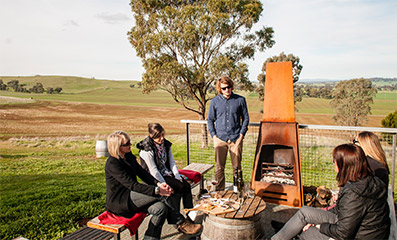As discussed in the fundamentals section, Dr Cosgrave’s research found that intention to stay is not only influenced by aspects of life satisfaction but, and just as importantly professional satisfaction.
In WoP-RIF, professional satisfaction is related to the organisational/workplace and career/role aspects — which are the responsibility of employers to address.
Dr Cosgrave’s research found that to support new staff to have professional satisfaction it is essential that they are given a comprehensive orientation at the start of working.
Dr Cosgrave’s research has highlighted the long-lasting negative impact on intention to stay when new staff receive no or very little orientation. In one of Dr Cosgrave’s academic paper’s, she discusses interviewing professionals who, because of staffing shortages, were just expected to jump in and get on with the job from day one; and some of whom were new graduates!
So, as the employer, it is essential you welcome and support all new staff to settle in well and make strong personal connections in the workplace.
TIPS: Here are some suggestions for helping you to provide a warm welcome and provide a comprehensive orientation
- Before first day communication with new staff members, providing all the administrative details they will need to help make their first day stress free i.e. details about: Where to go, Who to ask for on arrival, Where to park (and the cost if any), What to wear (if relevant), Where their workstation is located; Break times; Food availability etc. And don’t forget if you haven’t done so already, to refer any new staff members who are relocating to the CCP
- Hold a welcome event (e.g. a morning tea, lunch, after work gathering) so the new staff member can meet the other staff especially those they will be working closely with, and if a large organisation, also an opportunity to meet the senior managers and executive.
- Providing a business cultural onboarding process to help new staff understand your business. In larger businesses this may involve creating a presentation or providing documents on the organisation’s values, its vision and strategic plan, and the organisational structure (including executive staff and board/committee members). Business cultural onboarding in small-medium sized businesses, may involve meeting with the owners/partners, senior managers and creating a presentation or providing documents on the business’ policies and procedures.
- Establishing an induction process to help new staff to get to know how to do their job. This may include information about policies and regulations, OH&S procedures and reporting processes etc.
- Establishing a buddy/mentoring system where new staff are matched with a member of their work team and they get to shadow them for a period and thereafter remain a point of first contact for queries and concerns.
The Community Connector Program has been heavily involved in the P4PE Program with Latrobe University. A cohort of 20 highly skilled engineers undertaking a 6-week online course which includes a two-week placement in Shepparton.
The CCP was able to connect with community and industry leaders to offer a mentor framework for participants whilst on placement/employment.
Catherine Klimeš
Program Manager: Innovation & Entrepreneurship, Latrobe University – P4PE Program
“The Community Connector Program has been an integral partner for the Shepparton P4PE Pilot program through their in-depth understanding of the regional perspective and needs.”
Catherine Klimeš
Program Manager: Innovation & Entrepreneurship, Latrobe University – P4PE Program
The Community Connector Program has been an integral partner for the Shepparton P4PE Pilot program through their in-depth understanding of the regional perspective and needs.
Without these insights, the Working Group would have struggled to have secured the required community connections that are vital for when professionals are making a decision to relocate.
This is especially true for migrants who are making a broader decision on what is right for the whole family.









